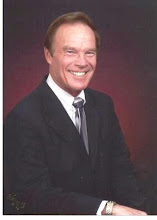A More Productive Way to Talk With Unhappy Customers

BRIAN DELANEY
Want to learn a new--and better--way to talk with unhappy customers? Then read on, to see what a company executive told me recently.
To prepare for my presentations for the Virginia Pest Management Association's State Technical Meeting, I scheduled phone conversations with several of the association's most prominent members. One of them was Brian Delaney, President of the Association. Brian's company is ProTech Pest Control of Virginia.
Brian explained his strategy for dealing with upset customers. He called his approach "noncommittal agreement." Our habit, he said, is to "make a decision before the customer gets to give the whole story." We "jump to a conclusion" too quickly.
Through experience, Brian has discovered a more productive approach. He listens, without making judgmental comments like "that's where you're wrong" or "our agreement doesn't include that service." In a quiet voice, he just agrees: "I see. . .Hmmmm. . .Tell me more."
Brian reports that the results are often amazing. Because he does not challenge the customer, the customer becomes friendlier as the story unfolds. In fact, Brian says that "sometimes the customer even apologizes for taking up so much of my time, and for getting upset over something so trivial." Certainly that doesn't happen in every case, yet the "noncommittal agreement" nearly always defuses a tense situation.
Throughout the customer conversation, Brian prompts the customer with questions. This underscores Brian's willingness to hear what the customer feels and thinks.
When I gave my speech on customer care, I called on Brian to share his noncommittal agreement concept. After he spoke, I linked his statement with Stephen Covey's five levels of listening--and noted that empathic listening, Covey's highest level, mirrored Brian's noncommittal agreement.
Next time you face a dissatisfied customer, try Brian's method. Both you and the customer will experience an unusual calmness. Instead of escalating into a verbal brawl, your dialogue will resolve the issue faster. As Stephen Covey advised, "Seek first to understand, and then to be understood."
Speaking of Stephen Covey, use this link to access my four minute video--"What's Your Listening Level?"--that discusses Covey's five levels of listening:
http://tinyurl.com/2ran6d
Also, to order my book--The Complete Communicator: Change Your Communication, Change Your Life-- and read the chapter on listening, go to my Web site's shopping cart, which accepts Visa and Mastercard:
http://www.championshipcommunication.com/store/index.htm


0 Comments:
Post a Comment
<< Home